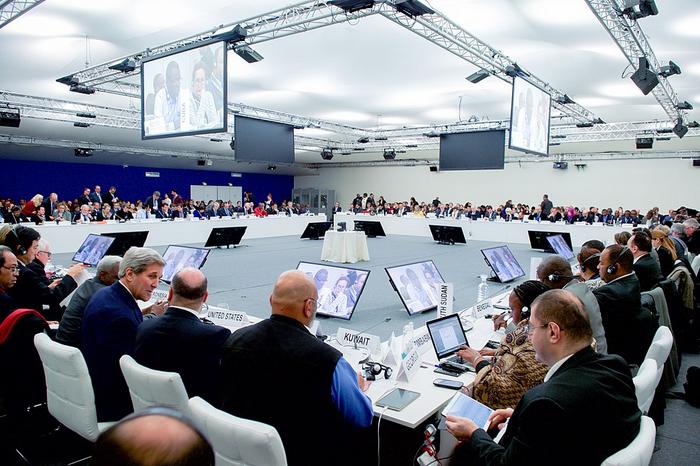A shift away from the individual expert as a source of scientific knowledge and authority is proposed by researchers in a recent scholarly paper, published in the open-access peer-reviewed journal Social Psychological Bulletin.

Credit: US Federal Government
A shift away from the individual expert as a source of scientific knowledge and authority is proposed by researchers in a recent scholarly paper, published in the open-access peer-reviewed journal Social Psychological Bulletin.
In their paper, the team of Dr Duygu Uygun Tunç (currently with University of Chicago, USA) and PhD candidate Mehmet Necip Tunç (Tilburg University, the Netherlands) propose an “extended virtue model”, where scientific expertise is rather associated with being a “reliable source of information” on certain scientific questions, instead of credentials, such as education, affiliations, scholarly publications, awards, and grants.
This perspective allows two things: we can identify groups (rather than individuals) as the true experts, where the scientific questions can be addressed only by a collective effort; and we can evaluate expertise on the basis of actual performance rather than accolades earned in the past.
This reform, they argue, would be the key to not only appropriately credit the scientific contribution of everyone involved in a big-team discovery, but also improve self-correction, replicability, and thereby overall integrity in science.
“Scientific expertise has been a topic of controversy for several decades, since with claims to expertise come claims to intellectual authority and responsibility. Should I trust the experts when they say I should undergo a risky surgical operation, receive a newly researched drug, or that governments must take drastic measures to counter climate change,” the team explains.
How we define and justify expertise has implications for public trust in science. One aspect of the credibility of science is its capacity to self-correct. How we conceive scientific expertise has an impact on how we diagnose problems with self-correction, and how we chart the path towards solutions.
In their scholarly paper, published in the open-access peer-reviewed journal Social Psychological Bulletin, the researchers examined how the research tradition in psychology conceives scientific expertise, and how this conception hampers reform efforts to increase psychology’s self-correction capacity.
The team notes that to this day, the mainstream conception of expertise remains very individualistic, and focuses on the possession of eminent credentials or unique knowledge and skills. Instead, they point out, society and policy makers need to favour a non-individualist model, which focuses on competent and responsible epistemic performance. They also remind that large research collaborations with other scientists are becoming more and more common, especially since complex and interdisciplinary questions require multi-faceted, socially distributed cognitive tasks beyond the capacity of an individual. However, it is very difficult to credit, reward or hold accountable an expert who is not an individual in the given system of credit and incentives.
“Previous research on problems with methodology showed that a significant portion of psychology’s complex questions require research collaborations. But why do the calls for big team science not find a wider appeal, and why do the existing initiatives face significant practical challenges?” ask the researchers. Moreover, “studies on questionable research practices and breaches of scientific integrity show that the possession of relevant knowledge and skills does not necessarily predict reliable performance as an expert,” they further explain.
To address the crisis of scientific self-correction at hand, the researchers develop a novel performance-based and non-individualist concept of expertise in terms of informant reliability. In their study, they also discuss how conceiving expertise as informant reliability will help devise better science policy to increase self-correction and to better understand and counter some of the reactions to scientific reform.
They argue that psychological experts can be considered reliable informants to the extent that they provide reliable and credible information about psychological phenomena, make accurate predictions about these phenomena, develop and implement effective interventions for psychological problems, or contribute to developing more effective social policies for societal issues.
“Otherwise, they may fail to be much different from ‘astrological experts’, who possess a wealth of knowledge about astrological theories as well as significant skill in observing, recording, and interpreting the patterns and movements of celestial objects in the light of astrological theories, but simply fail to fulfil their promise as experts: predict the future events by closely observing constellations,” they say.
As preliminary suggestions for how to move forward, the researchers say that “As measures of expertise, we should thus replace metrics of eminence (e.g., h factors) with metrics geared directly toward capturing a track record of competent and responsible epistemic performance (e.g., false discovery risk indices or empirical replicability audits).”
Research article:
Uygun Tunç, D., & Tunç, M. N. (2023). Psychology’s Reform Movement Needs a Reconceptualization of Scientific Expertise. Social Psychological Bulletin, 18, 1-32. https://doi.org/10.32872/spb.10303
Journal
Social Psychological Bulletin
DOI
10.32872/spb.10303
Article Title
Psychology’s Reform Movement Needs a Reconceptualization of Scientific Expertise
Article Publication Date
17-Nov-2023




